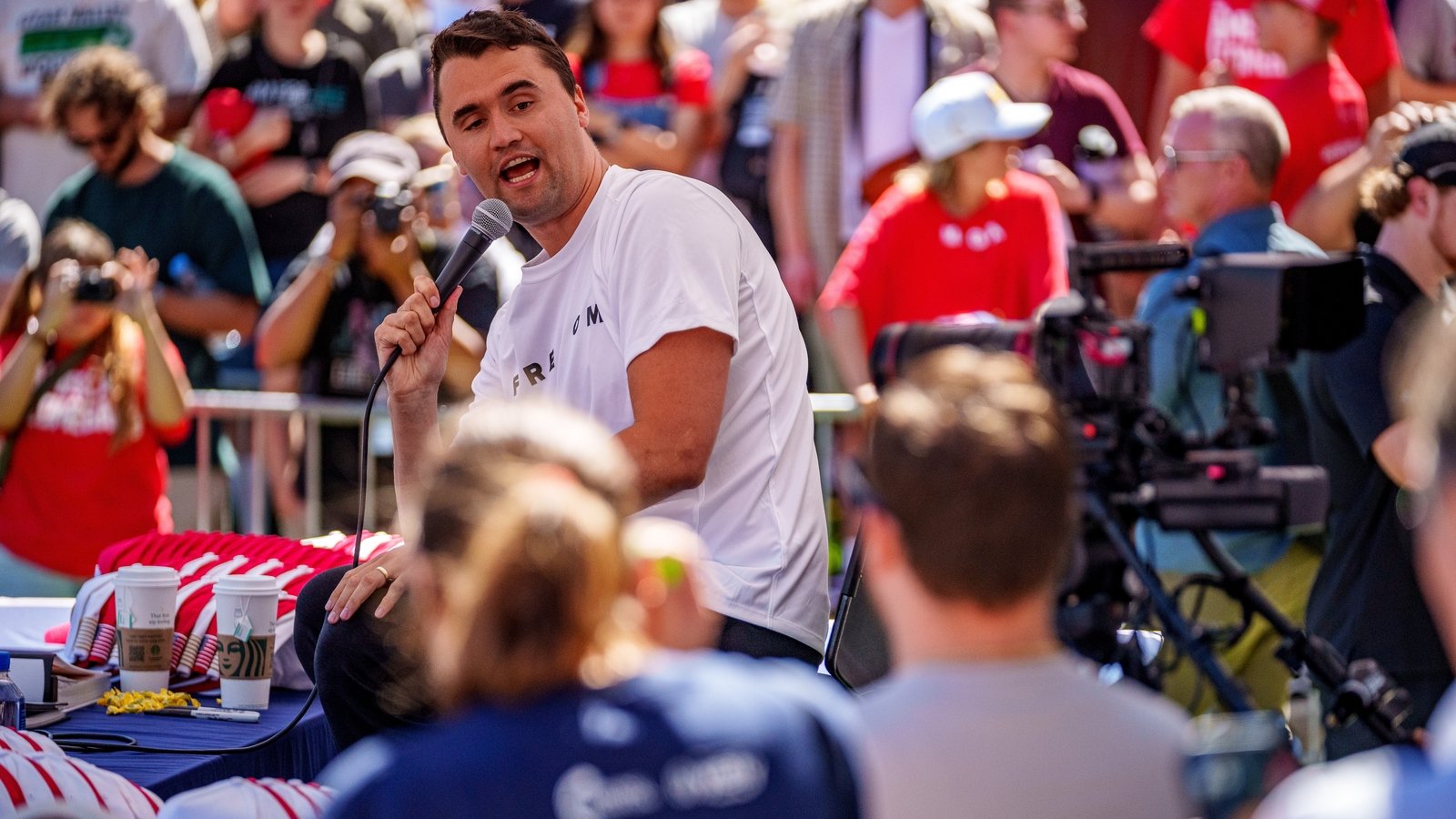
Benelux distributor The Searchers celebrates its 10th anniversary Wednesday evening atop Amsterdam landmark A’dam Tower, the former Shell building next door to the Eye Film Museum with spectacular views on the city’s waterways and historic center.
Founder Olivier Van den Broeck will be joined at the party by staff, company partners and a smattering of international execs from companies such as Rocket Science, Black Bear, The Veterans and Neon.
“There are people coming from Los Angeles, London, people we’ve had some big successes with. It’s funny. We see one another four, five, six times a year, which is more than I see some of my personal friends, and have shared meaningful times together on a personal level, while continuing to do business,” says Van den Broeck.
The Searchers has come a long way over the past decade. The exec recalls how at the company’s launch in 2015, he worked out of a small office in the Belgian city of Antwerp, with co-founder and former business partner Elise Van Marcke, one employee and his dog.
Today, the distributor employs 25 people, split between the HQ in Antwerp and an office in Amsterdam, many of whom have been with the company for a number of years.
Van den Broeck works out of Antwerp as MD and Head of Strategy, flanked by Head of Finance Benoit Vermeeren, while the eight-person Amsterdam team is led by Head of Operations Vincent Breedeveld.
Marcke, whose focus has veered toward production and development in recent years, departed The Searchers in 2025, to create her own company Frequency in Motion.
The Searchers has also risen to become the top grossing independent distributor in Benelux, ahead of other pan-regional indies such as Cinéart and September Film.
Spanning the Netherlands, Belgium and Luxemburg and with a combined population of 30 million people, the territory delivered an overall box office of €473 million ($559 million) in 2024 on 45 million admissions, according to data from pan-European exhibitor body UNIC. Within this, the Netherlands with a population of 18 million people, drove the market with a lion’s share of 29.1 million admissions.
With a focus on elevated English-language titles, The Searchers’ recent and current releases include Conclave, Ballerina, Hot Milk, Splitsville and The Salt Path, which has just become its biggest grossing film ever.
Its upcoming slate features Wisdom of Happiness, The Smashing Machine, Urchin, Greenland 2: Migration, The Wizard of the Kremlin, Roofman and In The Grey.
Successful titles over the decade have included The Beekeeper and Past Lives, its second and third biggest box office hits respectively, as well as A Prayer Before Dawn, The Man Who Killed Don Quixote, Hustlers, Brittany Runs A Marathon, 21 Bridges, The Personal History of David Copperfield, Beau is Afraid, May, December and Lee.
Van den Broeck cut his teeth in distribution at Brussels-based Imagine Film Distribution, before moving to Amsterdam-based arthouse label Remain in Light in 2013, a year after it unexpectedly hit the box office jackpot with Omar Sy-starring French comedy-drama The Intouchables.
“It was this tiny company that would release arthouse movies in the Netherlands on a couple of screens, and then suddenly it had these enormous revenues. It sounds like a luxury problem, which it was, but at the same time, they didn’t have the structure…. they brought me in afterwards to navigate the chaos and the mayhem,” he recalls.
It was during this time that Van den Broeck and Van Marcke, who was also working with the company, started connecting with companies specializing in U.S. indie fare and spotted a gap on the market.
“Movies that we thought were cool and for our generation weren’t getting distributed independently in Benelux because they were stuck somewhere in between. They weren’t big enough for the mainstream independents and they were too edgy for the arthouse independents,” recalls Van den Broeck, citing titles like Whiplash and Nightcrawler, which were released respectively by Sony and Disney in the territory.
With the backing of Liberty Film Production and Remain in Light, Van den Broeck, and Van Marcke struck off on their own to set-up The Searchers, which officially launched in Toronto in September 2015.
Its first releases were Joel Edgerton’s psychological thriller The Gift and neo-Western Hell or High Water and Jackie.
“We started out wanting to release six to eight movies a year, very much in that specialty zone that we thought was cool, which today, I would say was a bit like what Fox Searchlight and Focus Features were doing back in the day,” says Van den Broeck
In Toronto, the co-founders were approached by John Friedberg, who had recently been appointed President of International sales at STX Entertainment (and now heads up international at Black Bear), asking whether they would be interested in being the official partner in the Benelux for the then fledgeling studio.
Van den Broeck and Van Marcke initially balked at the idea saying they did not have the financial means to bankroll such a deal.
“Our hair had turned grey working on the financing to set up the company, but he was like, you’ve just raised a couple of million, why don’t you now raise 10 million… we were like ok we’ll try… we actually found an equity investor pretty quickly, who immediately increased the equity, enabling us to work with STX,” recounts Van den Broeck.
Early titles under this deal included The Space Between Us, Mile 22, A Bad Moms Christmas, The Foreigner and Peppermint.
“STX, with all their flaws and qualities, was great for us, because it gave us a stream of movies, structure and credibility. Some were not great, to be diplomatic, but some were. It immediately gave us a balance between cool specialty films we wanted to do, and it started evolving from there. We learned a lot from working with STX, and the experience developed us into a more mainstream company” says Van den Broeck.
It would be the first in a series of partnerships with indies player focused on elevated English-language fare including Black Bear in L.A., Anton Capital, in London with which The Searchers struck a co-financing deal in 2018, as well as strong relationships with the likes of FilmNation, from which it acquired Conclave.
New models
Van den Broeck suggests that the timing of the company’s launch after the demise of revenue from physical home entertainment was an advantage in a way because it forced them to adopt new business models from the outset.
“We had never existed in the golden age of video and DVD, so our business plans didn’t look at that as a source of revenue. We didn’t have the pipeline of one amazing movie after another yet, so we didn’t have big TV output deals either,” he recounts.
“We really had to find a completely different way. While, of course, over the years, TV and streaming grew as a source of revenue, from the very early days we had to strike a healthy balance between theatrical releases, of which I’m a big fan and a big believer in, and coexistence with the upcoming streamers, and find partnerships that would enhance the potential of our films.”
This approach was made possible, he adds, thanks to the flexible media chronology legislation in the Netherlands and to a lesser extent in Belgium.
“We’ve played around with that quite a bit and experimented. We’ve done day-and-date releases with Netflix that worked or it didn’t work. We brought Roma to the theaters, we brought The Irishman to the theaters,” says Van den Broeck.
“In the early days we had some big battles, especially with the independent arthouse theaters but also with some of the multiplexes, and discussions over what hurts most, The Irishman coming to theaters with a one-week window, or The Irishman not coming to cinemas at all.”
One of The Searchers’ closest streaming partners has been Prime Video through collaborations on films such as Gerard Butler comet disaster movie Greenland, crime drama Dutch Hardcore Never Dies and recent Belgian crime thriller Gangstas by Bad Boys For Life duo Adil El Arbi and Bilall Fallah, which is the biggest grossing local film of 2025 in Belgium.
The Searchers co-produced and part financed the latter title and owns the international rights to the film outside of Benelux but Van den Broeck says he has no aspirations to expand into production.
“I really like the distribution business in the sense that it’s fast and there’s a lot of volume. It sounds unromantic, but to be a good distributor you must embrace volume,” he adds, noting that the company releases around 25 titles a year.
“We have talented people doing acquisitions, but there is always this X-factor in that you never know exactly what’s going to work. We never acquire a movie thinking it’ll bomb, but sometimes we get it wrong. Luckily, for every time we do, if we do a good job, we also bring on movies that are unexpected surprises.”
Focus on projects
While a big move into production is not on the cards, Van den Broeck says he expect that the company to double down on its approach of acquiring features at the project stage.
“Our relationships with production companies will continue to deepen and that’s essential, because the projects we work on define who we are. But personally, I’m not drawn to becoming a producer,” he says.
This strategy keeps the company out of bidding wars for completed films, such as the scramble for Lynne Ramsay’s Die My Love with Jennifer Lawrence at Cannes this year, for which Mubi put down a reported $24m in a multi-territory deal.
The Searchers released Ramsay’s previous feature You Were Never Really Here with Joaquin Phoenix in 2017. Van den Broeck admits it can be frustrating to be priced out of acquiring films by directors the company previously supported but that ultimately his eye is on the bottom line.
“I’m quite grounded. Of course, if you’re always rational you’ll never acquire any movies because there is always an inherent risk. However, we don’t acquire a lot of finished movies and it’s easier to get carried away on finished movies,” he says.
“We prepare our pipeline one, two, three years in advance, often through long-standing relationships. Can you be passionate about a script? Absolutely, but it’s easier to be grounded and to focus on economic reality versus artistic reality when you’re thinking ahead of time, rather than when a film gets five-star reviews and people are asking whether it’s going to win the Palme d’Or.”
The festival and market regular reveals in passing that across the close to 400 feature acquisitions over the last decade, The Searchers has never picked up a Palme d’Or-winning film.
Its awards seasons track record, however, is to be admired with the company handling 2025 Academy Award nominees The Apprentice, Maria and Better Man, as well as Oscar winners Conclave and I’m Still Here.
Van den Broeck says that in many ways The Searchers has more affinity with Toronto than Cannes.
“I just returned from Toronto, and it was great. I really felt like a fish in water there. I went to watch 10, 12 films that we have acquired. I wanted to see how the audience reacted,” he says.
“It’s much closer to our DNA than Cannes, not simply because its Anglo Saxon or American, but more because we’re bit more commercial in our tastes and our movies tend to play much better in Toronto and Telluride, or sometimes in Sundance, if they’re more on the quirky side.”
Looking to the current 2025-26 awards season, Van den Broeck is pinning his hopes on The Smashing Machine and Roofman.
“The Smashing Machine is film that could have gone both ways and I feel this one has real momentum, with support for Dwayne Johnson, who everybody kind of likes, as he delivers a performance that can be artistically recognized,” he says.
“The same goes for Roofman. People also really like Channing Tatum… those are two films that I personally really like and feel could be part of the awards conversation.”
Next steps
Van den Broeck says that while The Searchers’ slate for early 2026 is looking fairly mainstream, a longer-term goal is to diversify the slate into more non-English language fare and to specifically seek out French and Dutch-language titles that can work across the Benelux market.
“Historically, it’s been very segmented, with French-language films working in French speaking Belgium; Flemish films working in Flanders and Dutch films working in the Netherlands,” he says.
“If there’s one role that I would love to play, it is to invest in productions and films that actually have a more Benelux approach. Benelux is a substantial market but it’s not that big either, so when you start cutting it up into small pieces, it becomes very much a niche market. and my goal is definitely not to become a niche distributor.”
Looking to the future, Van den Broeck says a plan is place for further growth, with the focus very much on connecting with audiences.
“What excites me most is moving closer to audiences, whether through exhibition, new technologies, FAST channels, or even broadcasting. While I have no concrete plans to open a cinema, I do feel this direction— moving further down the chain —is closer to our heart and will shape our strategy as we diversify the business and define our position within the industry.”



